Facing an ovarian cancer diagnosis throws a wrench into everyday life, and intimacy often lands at the bottom of the priority list - until it doesn’t. Many people discover that the physical and emotional shifts caused by the disease and its treatment ripple straight into the bedroom, affecting confidence, desire, and the simple act of being close. This guide pulls together the most common hurdles and hands‑on solutions so you and your partner can navigate intimacy with honesty, compassion, and a bit of creativity.
Quick Take
- Ovarian cancer and its treatments can change hormones, cause pelvic pain, and impact body image.
- Open communication with your partner and health‑care team is crucial.
- Non‑penetrative intimacy, lubricants, and pelvic floor exercises can help keep closeness alive.
- Build an "Intimacy Action Plan" to track what works and what needs tweaking.
- Seek professional counseling if emotional strain becomes overwhelming.
How Ovarian Cancer Impacts Sexuality
Ovarian Cancer is a malignant growth in the ovaries that often requires surgery, chemotherapy, or targeted therapy. While the primary goal is to remove or shrink the tumor, the side effects can touch every part of a person’s sexual life.
Physical changes such as surgical removal of ovaries (oophorectomy) halt natural hormone production, leading to sudden menopause. This brings hot flashes, vaginal dryness, and a lowered libido. Chemotherapy can cause fatigue, nausea, and nerve sensitivity, making any physical activity-including sex-feel exhausting.
Sexuality refers to the way individuals experience and express themselves as sexual beings is therefore not just about desire; it’s a blend of bodily comfort, emotional safety, and relational trust. When any one of those pillars shifts, intimacy can feel fragile.
Physical Changes and Their Direct Effects
Surgery in ovarian cancer often involves removing one or both ovaries and sometimes part of the uterus can lead to scar tissue, reduced pelvic floor strength, and altered sensation. Women may report pain during penetration or a feeling of “tightness.”
Chemotherapy uses drugs to kill rapidly dividing cancer cells, but also attacks healthy cells can cause nausea, fatigue, and neuropathy that dulls feeling in the pelvic region. Hormonal changes after chemo can amplify mood swings, further dampening desire.
Radiation Therapy (less common for ovarian cancer) can irritate pelvic tissues, increasing dryness and pain adds another layer of discomfort.
Body Image is how a person perceives their own physical appearance and worth often takes a hit after surgery scars, weight changes, or hair loss. Feeling “less attractive” can make initiating intimacy feel risky.
Emotional and Psychological Angles
The mental strain of an ovarian cancer journey is real. Anxiety about recurrence, grief over lost fertility, and the sheer exhaustion of treatment cycles can cause a mental fog that makes sexual thoughts feel intrusive.
Partner dynamics may shift too. The well‑meaning partner might become over‑protective, unintentionally stifling the patient’s sense of agency. Conversely, the patient may withdraw, fearing they’re a burden.
When these feelings pile up, they can create a feedback loop: stress reduces desire, which then amplifies stress.
Talking It Out: Communication with Your Partner
Clear, compassionate conversation is the first line of defense. Here’s a practical script to get you started:
- Pick a relaxed moment. Choose a time when you’re both calm-not right after a chemo session.
- Use “I” statements. Say, “I’ve been feeling more tired and self‑conscious lately, and I’d like us to find new ways to stay close.”
- Invite feedback. Ask, “How are you feeling about our intimacy right now?”
- Set small goals. Maybe agree to a 10‑minute cuddle session before bed, or a non‑sexual touch exercise.
- Revisit regularly. Check‑in every few weeks to adjust expectations.
Remember, intimacy isn’t limited to intercourse. Holding hands, eye contact, and shared laughter all count as connection points.

Working with Your Health‑Care Team
Don’t assume your oncologist will cover intimacy concerns. Bring a trusted health‑care provider such as a nurse navigator, gynecologic oncologist, or sexual health therapist into the conversation. Ask specific questions:
- “What vaginal moisturizers are safe during chemo?”
- “Can pelvic floor physical therapy help with pain after surgery?”
- “Are there hormonal replacement options that won’t interfere with my treatment?”
Many cancer centers now have dedicated psycho‑oncology services-specialists trained to address the emotional side effects of cancer, including sexual distress.
Practical Strategies to Keep Intimacy Alive
Below is a quick‑reference table that pairs common challenges with actionable solutions.
| Challenge | Management Strategy |
|---|---|
| Vaginal dryness | Water‑based lubricants, vaginal moisturizers, occasional estrogen cream (if approved) |
| Pain during penetration | Try different positions (spooning, side‑lying), use pillows for support, engage in extended foreplay |
| Fatigue | Schedule intimacy during high‑energy times, keep sessions short, focus on sensual massage |
| Body image concerns | Partner‑led compliments, mirror exercises, wear clothing that feels good |
| Pelvic floor weakness | Pelvic floor physical therapy, Kegel exercises, biofeedback devices |
| Emotional distance | Weekly non‑sexual touch rituals, couples’ therapy, shared hobbies |
In addition to the table, consider these day‑to‑day tips:
- Non‑penetrative play. Focus on oral stimulation, mutual masturbation, or sensate focus exercises that emphasize touch without pressure.
- Temperature play. Warm oils or cool, smooth stones can add novelty and distract from discomfort.
- Mind‑body connection. Guided breathing or short meditation before intimacy can lower anxiety and heighten pleasure.
- Lubricant selection. Choose glycerin‑free, fragrance‑free options to reduce irritation; silicone‑based lubricants last longer during longer sessions.
Creating an Intimacy Action Plan
Turn the ideas above into a concrete plan. Use the checklist below to track what you’ve tried, what helped, and what still needs work.
- Identify peak energy times (e.g., after a light meal).
- Pick two non‑penetrative activities you both enjoy.
- Schedule a weekly “talk‑and‑touch” session-no expectations, just presence.
- Set up a follow‑up appointment with a pelvic floor therapist.
- Note any side effects from medication that affect desire; discuss adjustments with your oncologist.
Revisit the list every month. Celebrate successes, no matter how small, and adjust when something feels off.
When to Seek Professional Help
If intimacy issues linger beyond a few months, or if anxiety and depression intensify, consider these resources:
- Sexual health therapist. Specialists can teach sensate focus, address trauma, and tailor exercises to your post‑treatment body.
- Couples counseling. A therapist can mediate difficult conversations and help rebuild emotional safety.
- Support groups. Hearing stories from other ovarian cancer survivors often normalizes the experience and sparks fresh ideas.
Professional help isn’t a sign of failure-it’s a proactive step toward reclaiming pleasure and connection.
Frequently Asked Questions
Can hormonal replacement therapy be safe after ovarian cancer?
Hormone therapy is usually avoided unless the cancer was diagnosed at an early stage and hormone‑sensitive testing is negative. Discuss options with your oncologist; sometimes low‑dose vaginal estrogen is permissible because the systemic absorption is minimal.
What lubricants work best with chemotherapy‑related dryness?
Water‑based, glycerin‑free lubricants are the safest bet. Silicone‑based options last longer and don’t dry out quickly, making them ideal for extended sessions.
Is it normal to feel less desire after a hysterectomy?
Yes. Removing the uterus and ovaries drops estrogen and progesterone, which can shift libido. The change is often temporary, but if it persists, a hormonal evaluation may be warranted.
How can my partner support me without making me feel pitied?
Ask what helps rather than assuming. Simple gestures-like a gentle back rub, cooking a favorite meal, or holding your hand-show care without spotlighting the illness. Keep the tone playful and collaborative.
Do pelvic floor exercises actually reduce pain?
Research shows that targeted pelvic floor therapy can improve muscle tone, reduce scar tissue tension, and lessen dyspareunia (painful intercourse) in up to 60% of women after gynecologic surgery.


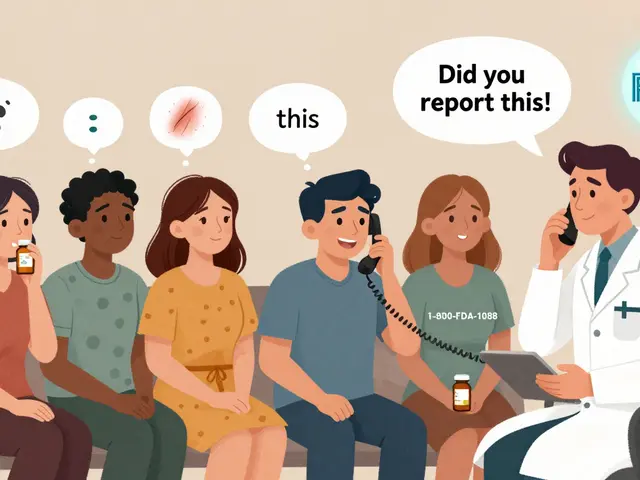
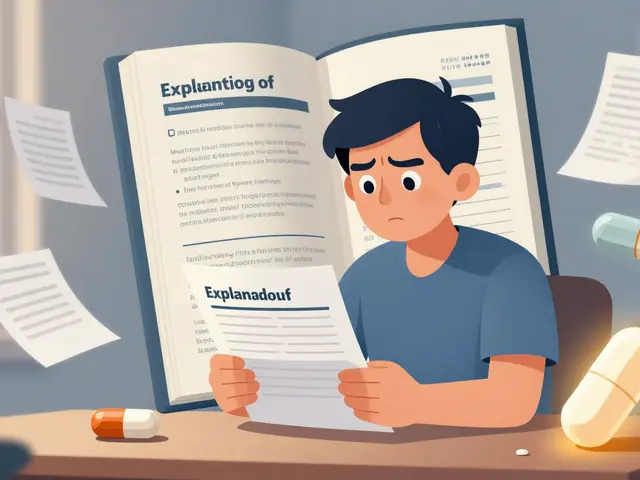
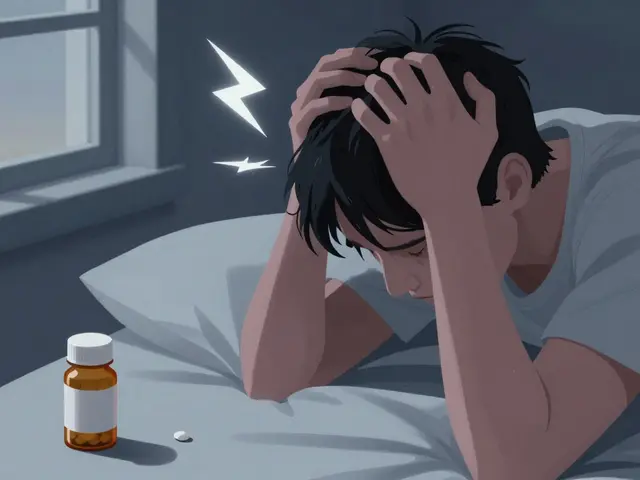
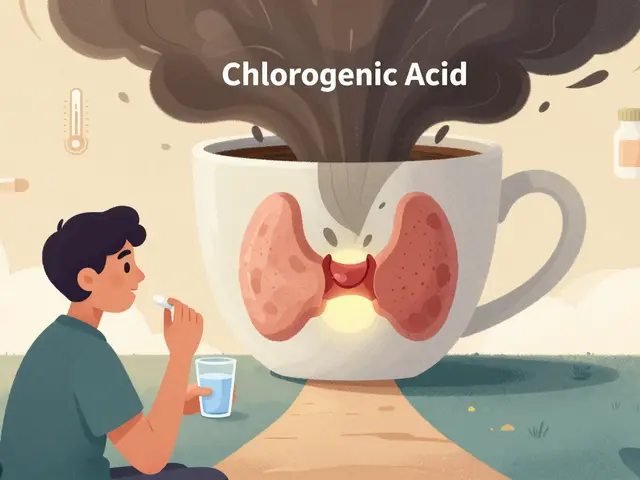
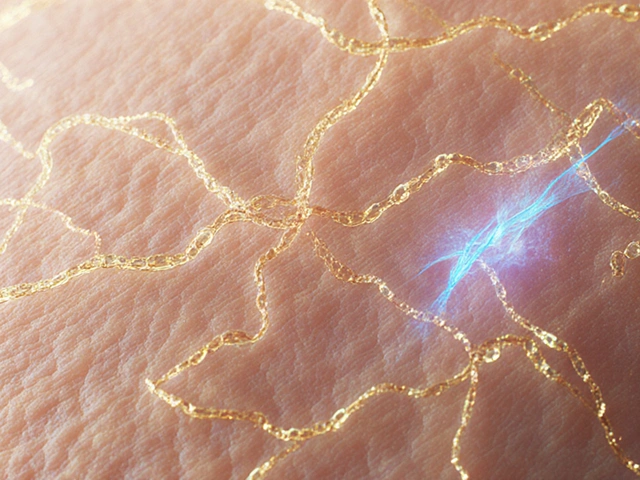
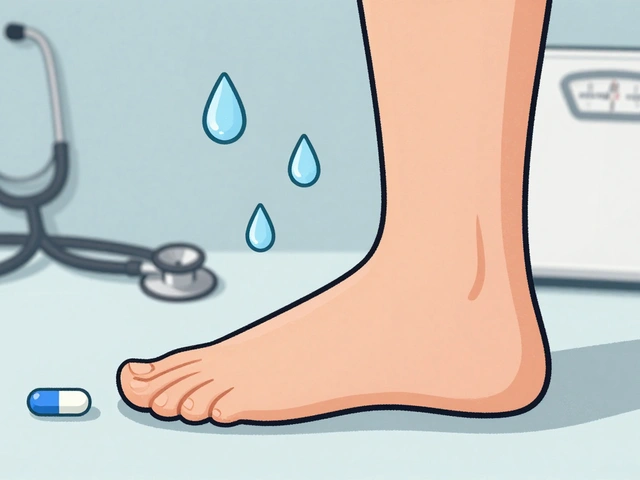
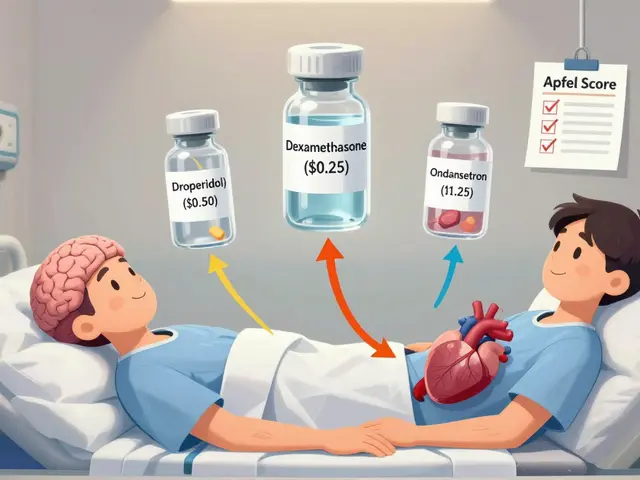
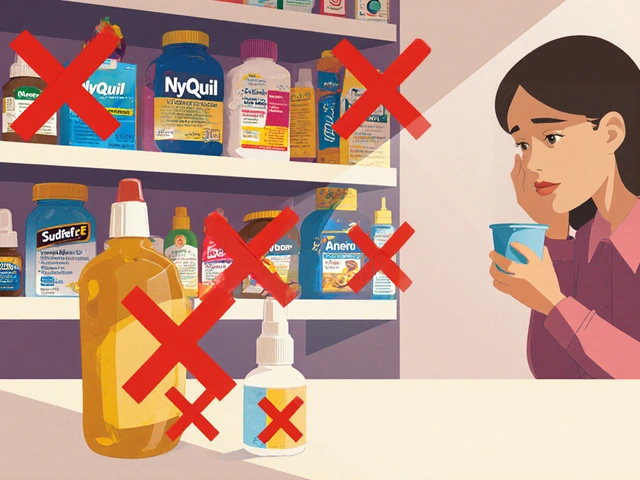

20 Comments
I didn't know pelvic floor therapy could help this much. Tried it after surgery and it changed everything. No more pain. Just simple exercises. Life saver.
This whole post is just corporate wellness fluff. Cancer isn't a couples retreat. You die or you don't. Stop pretending intimacy matters when your body is falling apart.
I'm sorry, but this is a dangerous oversimplification. The FDA has not approved estrogen creams for post-ovarian-cancer patients without explicit genomic testing. You're risking recurrence. And please stop using the word 'play'-it trivializes trauma. This isn't a dating app.
They're hiding the truth. Chemo causes DNA damage that makes your body reject intimacy. The government doesn't want you to know this. That's why they push 'lubricants' and 'cuddling'-it's a distraction. Watch the video I linked.
I lost my wife to this. I didn't know how to talk about it. I just held her. We didn't have sex for months. But we watched old movies every night. That was enough. Sometimes love is just being there.
Let me be clear: if you're still thinking about sex after an ovarian cancer diagnosis, you're not healing-you're avoiding. True recovery means surrendering to the grief of your lost body. To suggest that 'sensate focus' or 'temperature play' is therapeutic is not just naive-it's morally irresponsible. This isn't a self-help blog. This is death.
The efficacy of pelvic floor therapy in post-gynecologic oncology populations is supported by meta-analyses with moderate heterogeneity (I²=42%). However, adherence rates remain suboptimal due to psychosocial barriers and lack of standardized referral pathways. A multidisciplinary care model is essential.
You don't get to tell people how to grieve their bodies. I lost my ovaries. I lost my sense of self. And now you want me to 'try spooning'? 😔 That's not intimacy. That's gaslighting. I don't need tips. I need to be seen.
This is so real. My wife went through this last year. We started with just holding hands for 5 minutes before bed. Then we did foot rubs. Then one night she kissed my shoulder. No pressure. Just us. It's not about sex. It's about showing up. 🤍
The utilization of water-based lubricants in oncology patients is not evidence-based unless they are pH-balanced and free of parabens. The article's casual recommendation of silicone-based products is clinically unsound and potentially hazardous. Furthermore, the suggestion of 'temperature play' constitutes an unregulated therapeutic intervention with no institutional oversight.
I want to say this to every woman reading this: your worth is not tied to your ability to have sex. You are still whole. You are still beautiful. You are still desired. I was told I’d never feel pleasure again after my surgery. Three years later, I had my first orgasm-not because I 'tried a new position,' but because I finally stopped trying to be fixed. I started listening. And I let myself feel. You deserve that too.
If you're using lubricants, you're already doing it wrong. Real intimacy doesn't need products. You should be focusing on spiritual alignment, not silicone. And why are you even thinking about sex? Your body is fighting cancer. Priorities, people.
This is what happens when you let influencers run medical advice. Pelvic floor therapy? For cancer? That's a scam. The real issue is the pharmaceutical industry pushing 'sexual wellness' to sell products. You're being manipulated. Don't fall for it.
Thank you. This helped me talk to my wife. We’re not in the US, but the feelings are the same.
I read this and wondered… are they monitoring us? Who funded this? Why now? I’ve been told my pain is 'in my head'-now they want me to do exercises? I don’t trust this.
The body remembers trauma. Not just the scar tissue. The silence. The fear. The way your partner looked away when you took off your shirt. You can’t fix that with a lubricant. You need to sit in the wreckage first. Then maybe… maybe you can rebuild. Not as you were. As you are.
I didn't cry until I read the part about 'non-penetrative play'. That word. Play. Like I'm some kid with a toy. I'm not playing. I'm surviving. And yeah, I still want to feel close. But don't you dare call it play.
This is the kind of thing I wish I had when I was going through it. Not because it fixed everything, but because it said it was okay to still want connection. Even if it's just a hand on the back. Even if it's silent. Even if it's ugly. You're not broken for wanting it. 💛
Can someone explain how estrogen cream works if the ovaries are gone? I'm confused. Is it absorbed through the skin? Does it go into the bloodstream? I need details.
To the person asking about estrogen cream: it's topical, yes, but absorption varies. Studies show serum E2 levels rise by 15-30% in some patients. That’s enough to stimulate ER+ cells. If your cancer was ER+, you’re playing Russian roulette. Don’t be that person.